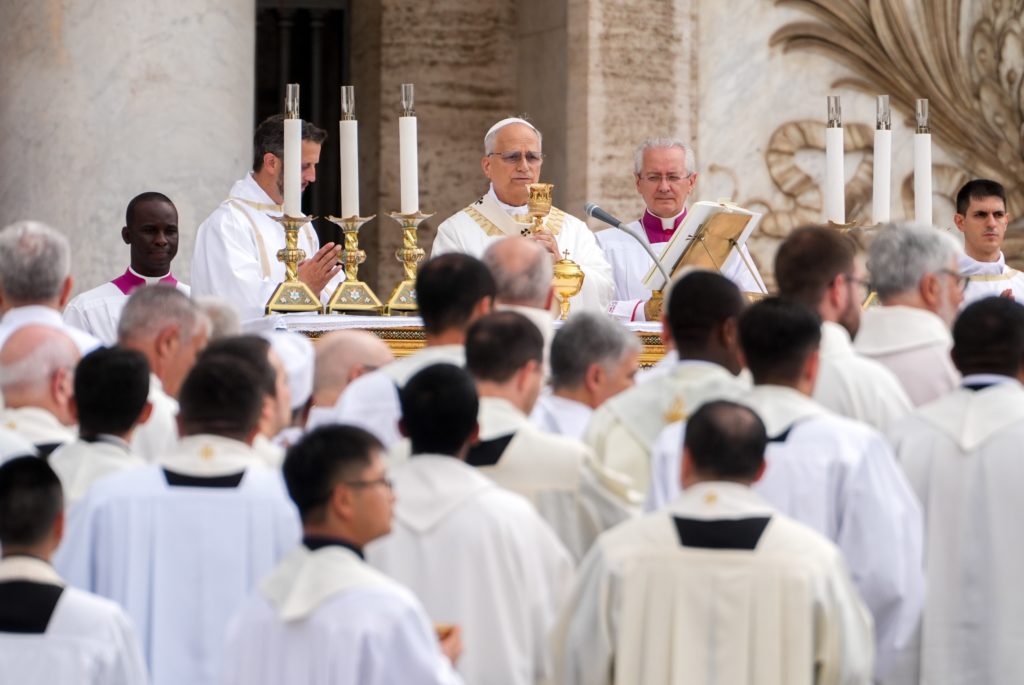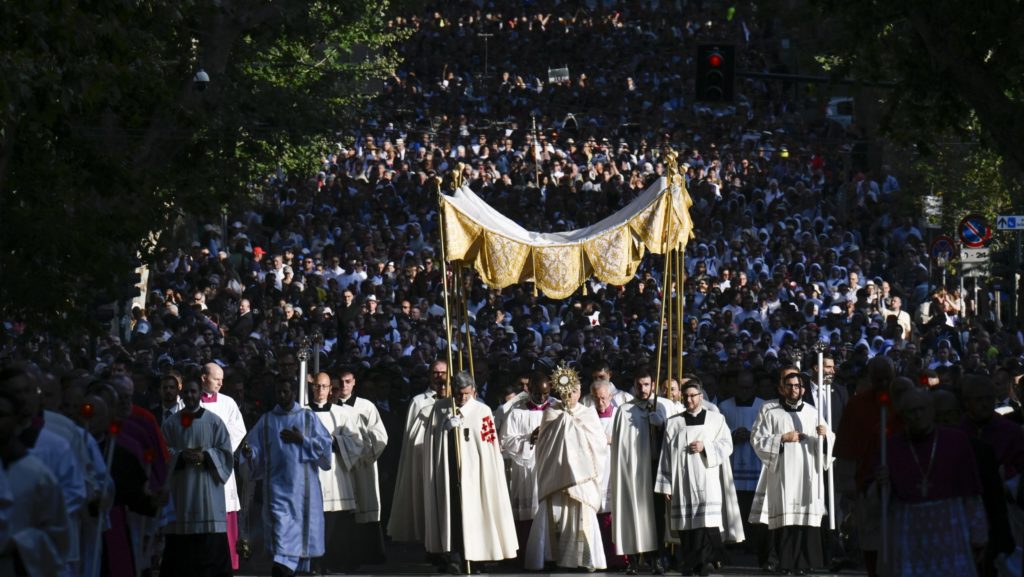In carrying Jesus through the city streets in a Corpus Christi procession, Christians are called to be witnesses of his love, sharing both their material and spiritual gifts, Pope Leo XIV said.
A procession with the Eucharist is a way to present Jesus "to the hearts of those who believe, so that they may believe more firmly" and "to the hearts of those who do not believe, so that they may reflect on the hunger present within them and the bread that alone can satisfy it," the pope said in his homily June 22.
Pope Leo celebrated an early evening Mass outside Rome's Basilica of St. John Lateran for the feast of the Body and Blood of the Lord before joining thousands of people -- including children who had recently received their first Communion -- for the Corpus Christi procession to the Basilica of St. Mary Major, about a mile away.
Pope Leo carried the monstrance with the consecrated host under a golden canopy held by eight members of the Equestrian Order of the Holy Sepulchre of Jerusalem. When he reached the Marian basilica about 45 minutes later, he presided over Benediction.
The Gospel reading for the Mass was St. Luke's account of Jesus multiplying five loaves of bread and two fish to feed a crowd of thousands.
"Jesus responds to the appeal of hunger with the sign of sharing: he raises his eyes, recites the blessing, breaks the bread and feeds all present," the pope said.
"The Lord's actions are not some complicated magical rite," he said. Rather, "they simply show his gratitude to the Father, his filial prayer and the fraternal communion sustained by the Holy Spirit."
"Jesus multiplies the loaves and the fish by sharing what is available. As a result, there is enough for everyone," Pope Leo said. "In fact, more than enough. After all had eaten their fill 12 baskets-full were gathered up."
The Gospel account speaks to people's hunger for meaning, for God and for eternal life -- all of which are fulfilled when Jesus gives himself for the salvation of all, the pope said.
But, he said, the miracle also is a response of compassion to the physical hunger of the crowd.

"Today, in place of the crowds mentioned in the Gospel, entire peoples are suffering more as a result of the greed of others than from their own hunger," the pope said. "In stark contrast to the dire poverty of many, the amassing of wealth by a few is the sign of an arrogant indifference that produces pain and injustice."
"Especially in this Jubilee Year," he said, "the Lord's example is a yardstick that should guide our actions and our service: we are called to share our bread, to multiply hope and to proclaim the coming of God's kingdom."
The Eucharist, the pope said, is the pledge that Jesus not only sates physical hunger, but he can save everyone from death "because his body is the bread of eternal life."
"By offering himself completely, the crucified and risen Lord delivers himself into our hands, and we realize that we were made to partake of God," he said. "When we partake of Jesus, the living and true bread, we live for him."
The grace of the Eucharist satisfies the deepest human hunger, he said.
Pope Leo quoted St. Augustine: "Christ is truly 'panis qui reficit, et non deficit; panis qui sumi potest, consumi non potest' -- he is bread that restores and does not run short; bread that can be eaten but not exhausted."
In the Corpus Christi procession, the pope said, all those involved give witness to how Jesus' real presence in the Eucharist transforms them and leads them to become his body, united in the church.
"Together, as shepherds and flock, we will feed on the Blessed Sacrament, adore him and carry him through the streets. In doing so, we will present him before the eyes, the consciences and the hearts of the people."

